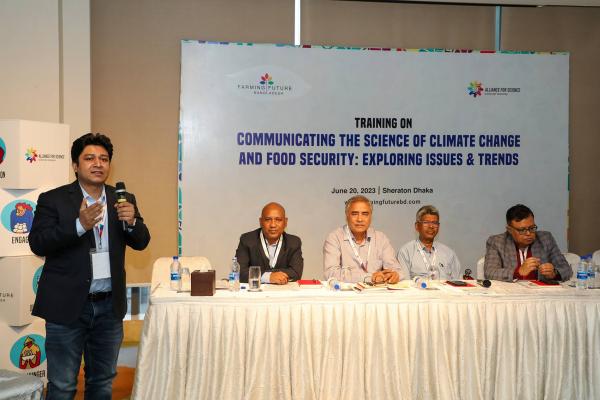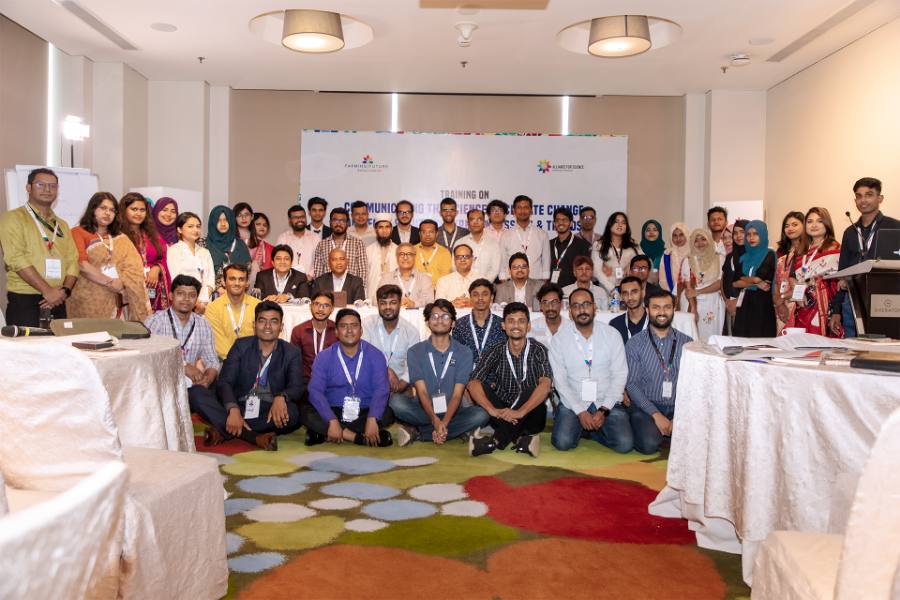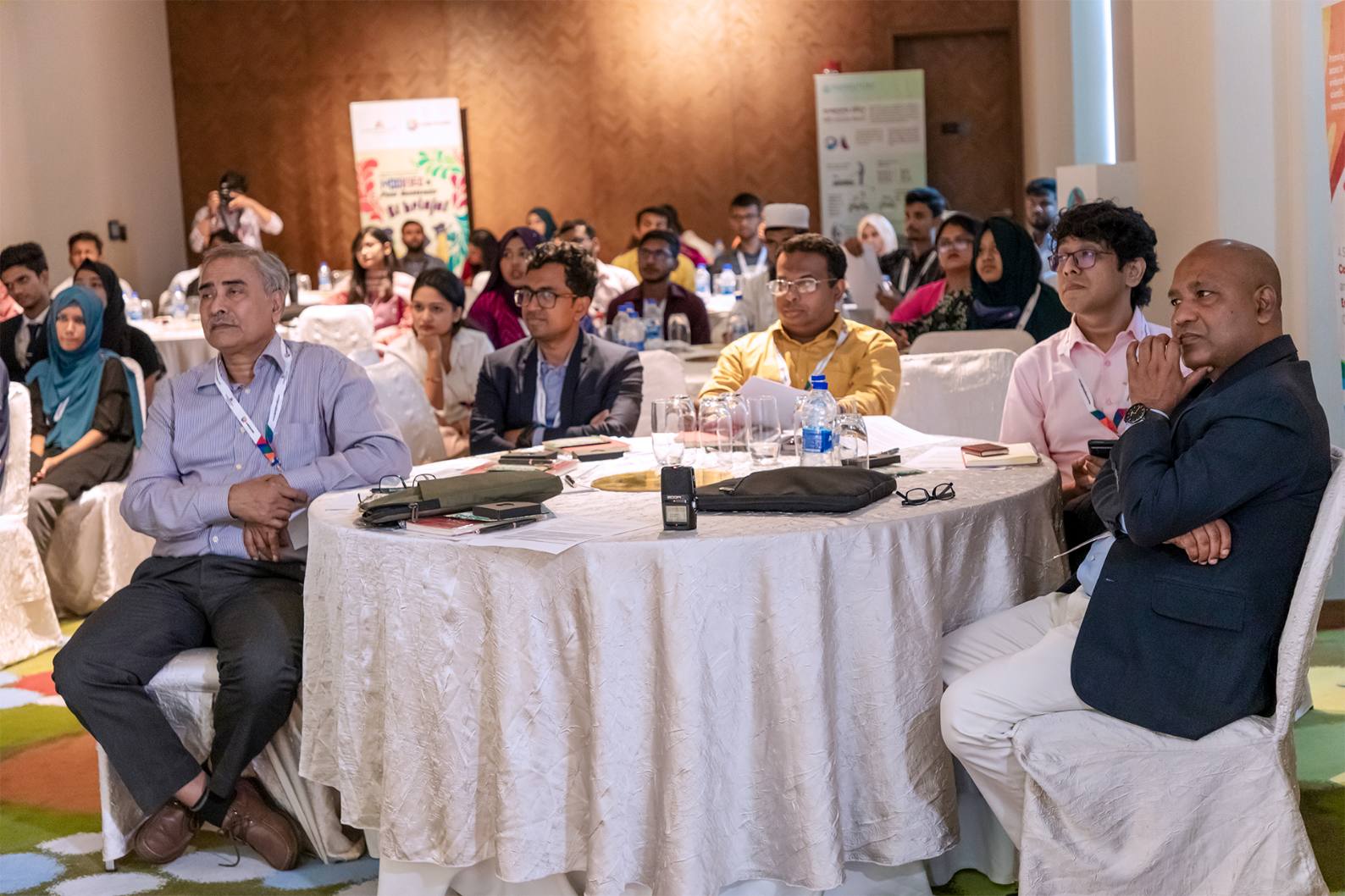
Farming Future Bangladesh hosted an impactful training workshop titled "Communicating the Science of Climate Change and Food Security: Exploring Issues & Trends. The engaging event, held at Sheraton, Banani, Dhaka, on June 20, brought together a total of 55 enthusiastic participants, including youth leaders, climate activists, and academia from the life sciences field. The workshop provided them with essential skills and knowledge to effectively communicate climate change and food security concepts.

The workshop featured esteemed development professionals who delivered insightful sessions, creating a platform for meaningful discussions and knowledge exchange. The program aimed to foster interdisciplinary collaboration, enhance communication skills, and highlight the value of networking and knowledge sharing among the participants.
Through engaging presentations and interactive discussions, the workshop equipped the youth leaders, climate activists, and academia with the necessary tools to become effective communicators of climate change and food security issues. By bridging the gap between science and public understanding, Farming Future Bangladesh aims to empower these young individuals to drive positive change in their communities and contribute to a sustainable future.

Mr. Anwar Faruque, Former Secretary of the Ministry of Agriculture and Advisor of Farming Future Bangladesh, emphasized the importance of empowering youth to address climate change and food insecurity. He highlighted the need for sustainable agricultural practices to ensure a resilient future.
Dr. Jiban Krishna Biswas, Executive Director of Krishi Gobeshona Foundation, provided valuable insights into the challenges and opportunities of achieving food security in the face of climate change. He stressed the significance of research and innovation in developing climate-resilient agriculture. Md. Arif Hossain, CEO & Executive Director of Farming Future Bangladesh, expressed his confidence in the youth, recognizing their immense potential in cultivating and promoting science communication among the general public. He highlighted the opportunity to address climate change and food insecurity sustainably through their abilities and leadership. M Zakir Hossain Khan, Founder & Chief Executive of Change Initiative, emphasized the importance of collaboration and knowledge-sharing through multi-stakeholder partnerships to effectively tackle climate change and food security challenges.
Mr. Tony Michael, Senior Advisor of Oxfam, highlighted the power of effective science communication in driving action and creating a ripple effect of positive change. He emphasized the mobilization of individuals, communities, and governments towards a sustainable future. Mr. Rajib Bhowmick, Director, Media & Public Relations, Independent University, Bangladesh, stressed the need to adopt innovative communication strategies, such as storytelling and digital visuals, to effectively convey the urgency of climate change and food security issues. The workshop concluded on a high note, inspiring participants to become change agents in their communities and contribute to a sustainable future. Farming Future Bangladesh remains committed to supporting and empowering youth leaders and climate activists, recognizing their crucial role in shaping a resilient and sustainable future.


